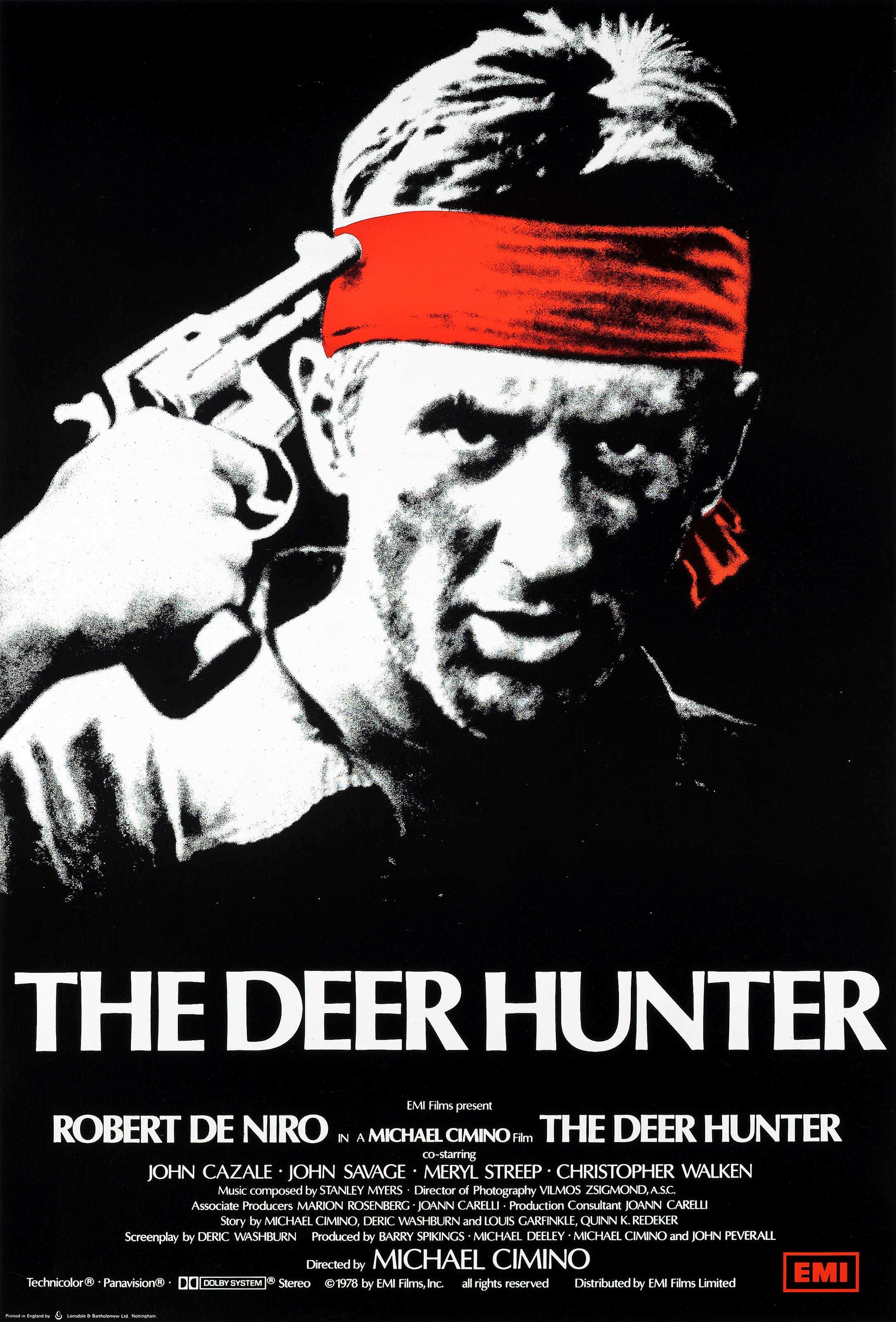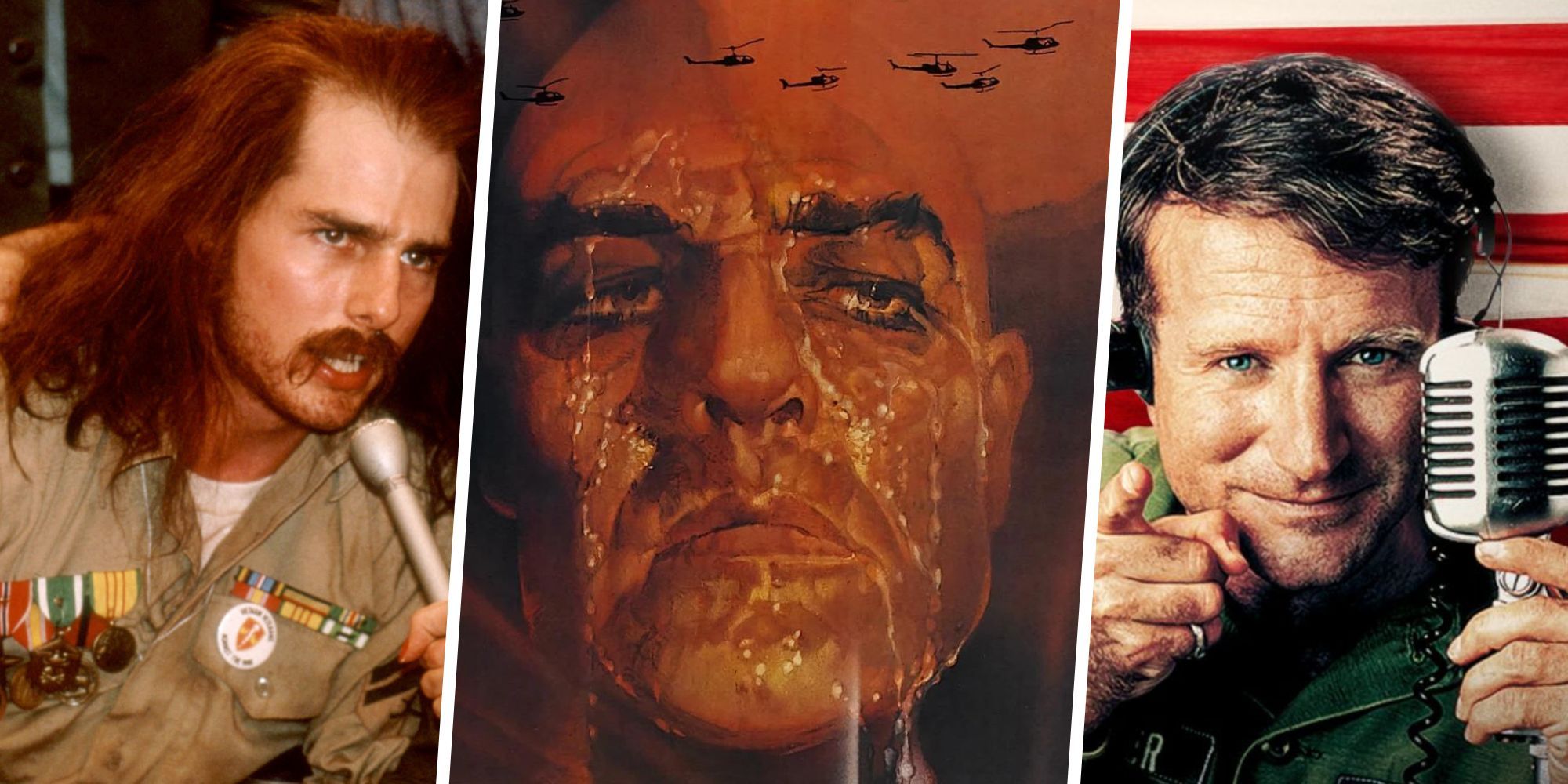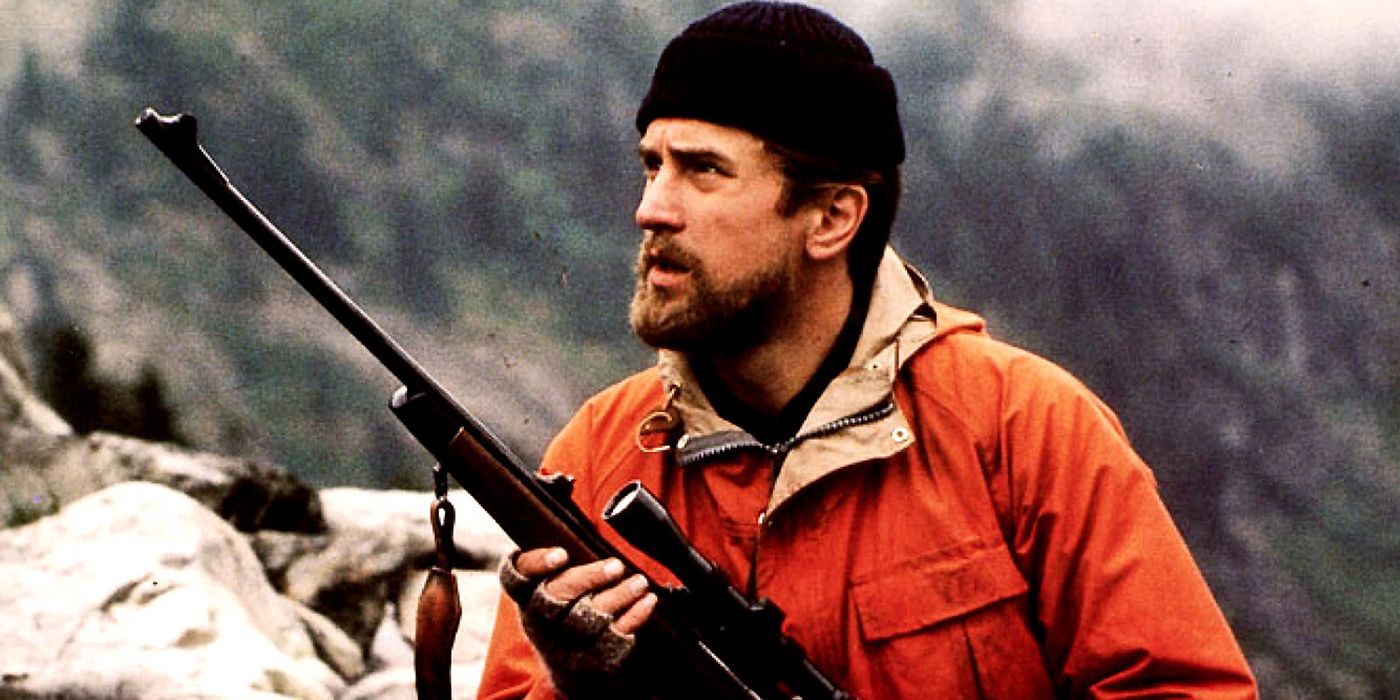The Big Picture
- The Deer Hunter is a modern American classic that explores the impact of the Vietnam War on everyday civilians in a small steel mill town in Pennsylvania.
- Director Michael Cimino's exceptional cinematography captures the heart and soul of the film through sweeping wide shots of the town's steel factory and cathedral.
- While the film's depiction of Vietnam and its portrayal of Vietnamese people has not aged well, The Deer Hunter's true poignancy lies in its portrayal of the lingering anxiety of war and the disillusionment of small-town America.
Nearly fifty years after its release, The Deer Hunter has stood as a modern American classic and an essential text in the canon of Vietnam War films. The film defined director Michael Cimino as a true auteur, further cemented Robert De Niro's legacy as the perennial actor of his generation, and announced Meryl Streep and Christopher Walken as powerful and graceful performers. Both Cimino and Walken were awarded Oscars for their impeccable work, which was capped off by a Best Picture victory for The Deer Hunter. Despite its monumental presence as a movie commenting on the operatic effects of the Vietnam War on everyday civilians, the 1978 film is at its best and most poignant when it steps away from the battlefield.

The Deer Hunter
An in-depth examination of the ways in which the Vietnam War impacts and disrupts the lives of several friends in a small steel mill town in Pennsylvania.
- Release Date
- December 8, 1978
- Director
- Michael Cimino
- Cast
- Robert De Niro , John Cazale , john savage , Christopher Walken , Meryl Streep , George Dzundza
- Runtime
- 183 minutes
- Main Genre
- Drama
- Writers
- Michael Cimino , Deric Washburn , Louis Garfinkle , Quinn K. Redeker
- Tagline
- One of the most important and powerful films of all time!
- Production Company
- EMI Films, Universal Pictures
Where Does 'The Deer Hunter' Take Place?
The Deer Hunter is set in the small town of Clairton, Pennsylvania, where three friends and co-workers at a steel factory — Michael (De Niro), Steven (John Savage), and Nick (Walken) — routinely partake in big game hunting. On the eve of their departure for Vietnam to serve in the military, and in celebration of Steven's marriage, a grand farewell is thrown for the impending troops. After experiencing the horrors of war, highlighted in the film by a tormenting sequence of Russian roulette forced by Vietnamese combatants, their lives and seemingly unbreakable bonds are shattered forever.
While the film is structured around the friendship of the three, Cimino expands upon the weight of this tight-knit bond by making them inseparable from their community. From the methods that capture the quaintness of small-town America to its authenticity, Clairton operates as a character. Despite its likeness to a portrait by Norman Rockwell, the daunting scope of the town looms over Michael, Steven, and Nick, who collectively represent blissful lives as blue-collar grunts. For Nick, the heart of the film, life is as close to a utopia in Clairton, which makes his fate in Vietnam even more tragic. Exquisitely orchestrated by the exceptional cinematographer, Vilmos Zsigmond, wide shots of the town's steel factory and cathedral that host the characters on their last days before combat capture the heart and soul of The Deer Hunter. Both are representative of the tough, blue-collar molding of the military-industrial complex and the virtue of salvation and a noble sacrifice, respectively.
These sweeping wide shots of rural vistas in Clairton fuel the operatic scope of the film, even more so than the harrowing sequences in Vietnam. The impact of Cimino and Zsigmond's meticulously crafted shots cannot be overstated, as they make the future veterans seem small in relation to their environment. This is beautifully contrasted with a Robert Altman-esque quality to the depiction of the town, where a plethora of characters are isolated yet also spiritually linked. In this case, the whole town is ostensibly pulled into the fervor of the wedding and the heroic send-off of the steelworkers. The painterly depiction of the Clairton vistas taps into the adventurous worldview of Michael, Steven, and Nick as steadfast deer hunters. Poetically, Cimino mirrors their mountainous hunting environment with the Vietnam battlefield. For each of them, especially Michael, who is the most fearless, enlisting in the war is another bonding activity with their hunting friends. In hindsight, the tragic nature of the film is exacerbated since their knack for hunting tricks them into believing that they are prepared for the monstrosity of war.

The 10 Best Vietnam War Movies, According to Rotten Tomatoes
It was an infamous time in history.From a modern-day perspective, the wedding scene is notably lengthy, perhaps even interminable by some. However, viewers who let the uproarious celebration of marriage and military service wash over them will grasp the true pathos at the heart of The Deer Hunter. The lingering, inevitable horror of Vietnam lingers over these moments of drunken jubilation and the sacredness of the church. For viewers in 1978, only three years since the last U.S. helicopters flew out of Saigon, the wedding ceremony can be identified as a last hurrah for American innocence. There is a certain downbeat thread of poetry in the creation of new life spawning from marriage coinciding with the imminent despair of war.
Why Doesn't 'The Deer Hunter's Vietnam Section Work?
The narrative and profound dissection of the Vietnam War's impact on rural America quickly stumbles and loses focus, ironically, when The Deer Hunter enters Vietnam. The war sequence, which tracks Michael, Steven, and Nick being captured by Vietnamese soldiers and the subsequent forced game of Russian roulette, is undeniably thrilling. Cimino shows equal chops in telling a story through long, elegant takes and fast-cutting sequences of tormenting anguish. Ultimately, there is an inexplicable vapidness to this famous setpiece. The cerebral nature of the film's examination of its characters and settings is lost once the combat begins. Not to mention, the depiction of Vietnamese people as heartless ravages, who seemingly have left their homes with no sentimentality, has not aged considerably well.
The war is naively presented as a bout between good versus evil, and though the film is never driven by subtlety, The Deer Hunter takes on an aggressive operatic quality in its second half. When Nick's PTSD causes him to spiral into nihilism, he forms himself as a local legend by participating in Russian roulette. Similar to the character's enlistment into the war, the film reaches a point of no return with this narrative shift. This broad characterization of the "Vietnam vet gone mad" is farcical. The meditation on the disillusionment of small-town America takes a permanent back seat once the film enters the jungle. The Russian roulette scenes, which at first were seemingly intended to exhibit a harsh contrast between their pre-war and post-war lives, are now deployed merely for shock value.
How Does 'The Deer Hunter' Compare to Other Vietnam War Movies?
Compared to future Vietnam-set films, such as Platoon and Full Metal Jacket, The Deer Hunter's engagement with how and why America got involved in the war is lacking. Worse, it gradually walks into a rationalization that the war was justified. For as much melancholic pathos is embedded in the film relating to the lingering anxiety of war, Cimino takes a more passive approach when Michael returns to Clairton. With Nick resigning to stay in Vietnam and Steven having his legs amputated, Michael grapples with the loss of his friends and comforts Nick's former fiancé, Linda (Streep). Film criticism becomes fraught when a form of scrutiny derives from what a film "should" have done, but from how Americans interpret the quagmire and failures of the Vietnam War today, The Deer Hunter's lack of poignancy surrounding the country's involvement is jarring, especially since the film positioned itself as a bleak humanist story about how U.S. foreign policy rips apart the fabric of small-town America.
A fitting companion piece to The Deer Hunter is another Vietnam-era film and major contender at the Academy Awards in 1978, Coming Home. The film by Hal Ashby is far more grounded and less artistically showy. Stripped of the operatic artifice of The Deer Hunter, Coming Home is honest about how the war-damaged those who fought and those experiencing the pain from the outside. Where the former uses Vietnam as a loose backdrop, the latter is entrenched in post-war anxiety and frustration. What most starkly separates the two films is their endings. Coming Home closes out with Jon Voight's paraplegic veteran character speaking to a group of youths expressing his regret in enlisting, arguing that military service is not worth losing your legs. The Deer Hunter ends with the main characters of Clairton, following the death of Nick, solemnly singing "God Bless America." There is no escaping the off-putting tonal dive into sentimental patriotism, despite the resounding and emotionally captivating aura of the film across three hours.
Throughout the extensive history of the United States' involvement in international combat, studying the effects of domestic life rounds out the greater societal and political impacts of war. With Vietnam, the gruesome battles only tell half the story -- the other half entails the divisive climate centered around anti-war protests and draft dodging. The Deer Hunter's faults in its macro view of the war are matched by its profound portrait of a small-town grasping for the last days of an idealistic Americana before being thrown into endless turmoil. The lasting images of Michael Cimino's film as a Vietnam text are not Robert De Niro and Christopher Walken playing Russian roulette, but rather banners of their faces hanging on the walls of the wedding ballroom. The undertones of sadness and decaying innocence amid the red, white, and blue decor evoke a pivotal turning point in the country at the precipice of the Vietnam War. In The Deer Hunter, it is the minutia of how characters dress, such as when the future vets wear hunting attire with their wedding tuxedo, or the look of despair on the deer's face after Michael shoots it. All in all, it is a film that captures the weight of Vietnam without needing to show a second of combat.
The Deer Hunter is available to rent on Prime Video in the U.S.

